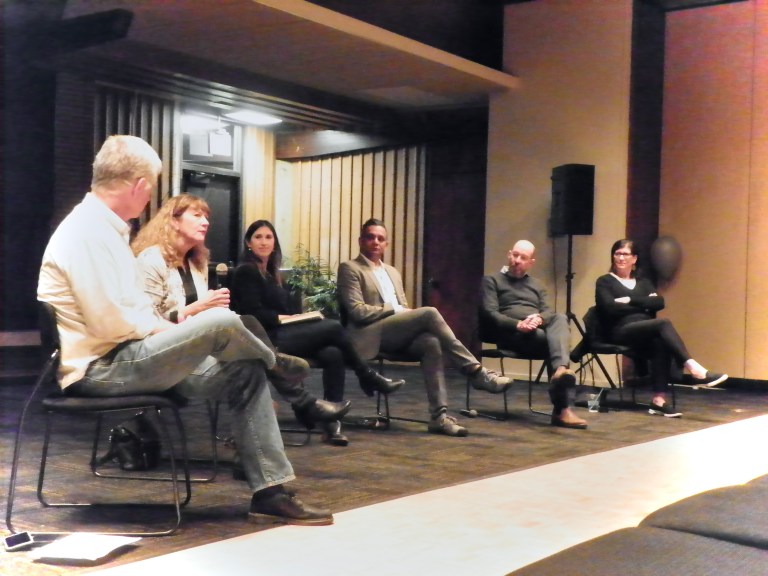Mallory Smith ’14 was only three years old when she was diagnosed with cystic fibrosis (CF), the leading genetic cause of death for children in the United States. Her doctors expected to have a cure by the time she was an adult. Yet, despite all medical efforts, she died at the age of 25, leaving her legacy in secret, handwritten diaries and audio recordings.
“Salt in my Soul” is a film based on a book published posthumously by Smith. It documents her 25-year struggle with chronic illness and shows how living with a life-threatening disease can affect one’s mental, physical and social well-being. Smith was a stellar student and human biology major who loved sports, the environment, writing, creative expression and swimming in the ocean.
An event on Monday, hosted in Tresidder Oak West Lounge, consisted of a panel of Smith’s friends, teachers and physicians at Stanford, who powerfully reflected on their encounters with her on both a personal and patient level. The audience was packed with doctors and scientists who took a keen interest in Smith’s case and the potential of phage therapy. The panel was moderated by history professor Jim Campbell, who proudly stated that it was his “singular good fortune” to have been Smith’s pre-major advisor.
The event began, fittingly, with Smith’s voice. Sounds of the whirring lung machine, ragged breaths, heavy coughs and lush ocean waves filled the warmly lit room as Campbell played a snippet from Smith’s podcast. Suddenly, memories of Smith in the film resurfaced, but this time she felt closer and we could hear the despair in her voice.
The panelists talked touchingly about their personal relationship with Mallory and how it affected them. Susan McConnell, a professor of biology and pioneering neurobiologist, said she met Smith in Sophomore College and didn’t realize that Mallory had CF until much later in the class.
“I became very aware of the number of students here who are living with chronic diseases,” she said, also mentioning that Smith’s ability to stay frank and honest made her an incredibly strong writer. Smith continued to work with McConnell to create the podcast as a part of her senior reflection.
Smith’s friend Julia Barrero ’14 nostalgically reminisced about hiking the dish and trips to San Francisco with her. As she read excerpts from the book, Barrero candidly revealed the effects of Stanford’s infamous “duck syndrome” on Mallory’s mental health. “The Duck Syndrome is a dangerous phenomenon,” Smith writes, “despite having left Stanford over a year ago, I still find myself refusing to let anyone peer below the surface and see me furiously paddling to stay afloat when I’m going through a rough time.”
Dr. Paul Mohabir, one of Smith’s doctors and the director of the adult CF program at the School of Medicine, recalled his vulnerable interactions with Mallory when she was hospitalized.
“I’ve started to reflect a lot more on people who have come into my life and left,” he revealed.
When asked how he emotionally deals with critical patients, David Cornfield, another one of Smith’s doctors, advised that one “cannot be so absolutely sincere that you give so much and have nothing left to give to your family or yourself.” He admitted that hearing Mallory’s voice just then had made him emotional.
“I didn’t ask for illness, but I own it. Because if I don’t, then no one else will,” says Smith in the film. In the final hours of her life, she received an experimental treatment that would turn out to be groundbreaking in the fight against superbugs.
Her story lives on in her book, podcast and film. Her passion for doing good and spreading CF awareness is continued by her parents who are activists working hard to educate about the chronic disease and gain support and funding for novel treatments, trying to make the world a happier and healthier place. The film can be watched for free on Stanford Kanopy.
